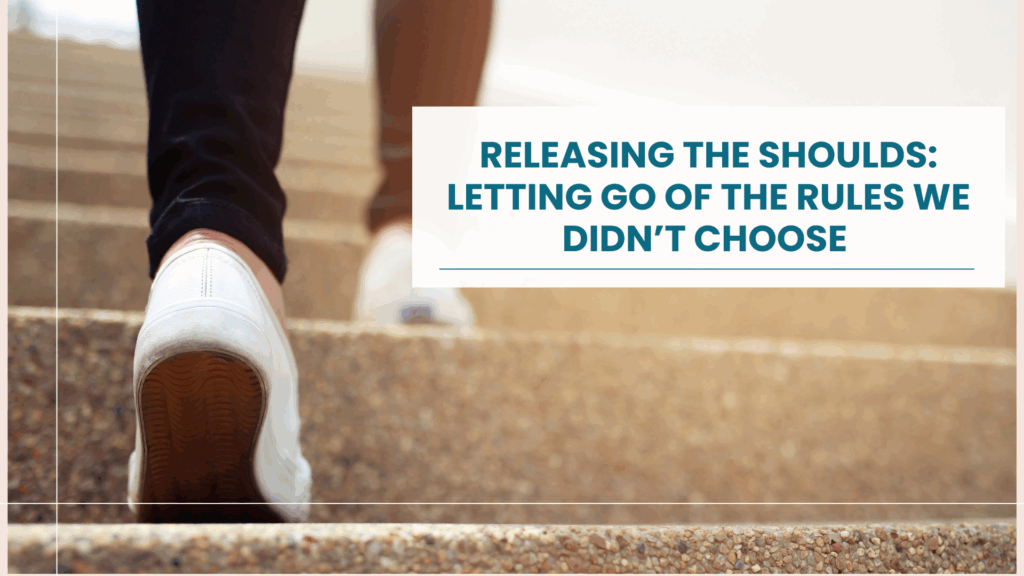Growing up in a family where alcohol shaped the emotional landscape often meant learning unspoken rules — rules that weren’t about thriving, but surviving. “I should be quiet.” “I should keep the peace.” “I should be strong.” These beliefs weren’t written down, but they were etched into us through years of chaos, silence, and walking on eggshells.
As adults, many of us are still carrying these “shoulds.” They show up as perfectionism, people-pleasing, or a deep fear of disappointing others. But here’s the truth: we are allowed to put them down. We are allowed to rewrite the rules.
It starts with one fundamental reminder about our childhood, summed up in Jerry Moe’s Seven Cs:
“I didn’t cause it. I can’t control it. I can’t cure it. But I can take care of myself. I can communicate my feelings. I can make healthy choices. I can celebrate myself.”
It’s never too late to understand that we didn’t cause this disease in our parents — and that seeking support to overcome the impact of our upbringing is a courageous step toward healing.
Where the “Shoulds” Come From
- Unspoken family roles in homes with significant alcohol use
- How kids become “the responsible one,” “the fixer,” “the invisible one”
- Survival vs. development
Common “Shoulds” COAs* Grow Up With
- “I should always be in control”
- “I shouldn’t ask for help”
- “I should make everyone else happy”
- “I should never be angry”
*COAs are children impacted by the disease of addiction. These COAs, without help and healing grow up as adults who are still impacted, often referred to as ACOAs.
How These Beliefs Hurt Us as Adults
- The cost of living by inherited expectations
- How the “shoulds” fuel shame, anxiety, and burnout
Releasing the “Shoulds”
- Noticing the inner voice — is it a caregiver’s voice or yours
- Replacing “should” with choice: “I can”, “I want to”, “I choose to”
- Practicing self-compassion and rewriting the narrative
Finding Freedom
- What healing looks like when you let go
- Tools that help: therapy, support groups, creative expression
- Embracing and loving your own definition of who you are — not who you were told to be
Releasing the “shoulds” is not about blame — it’s about reclaiming your voice, your needs, and your freedom. You get to grow on your terms now. And every time you choose gentleness over guilt, presence over perfection, you make space to be your whole self — not just the version you had to be.
The Seven Cs remind us that healing is possible — and deserved. You can break old patterns, build new stories, and give yourself the kindness you always needed. You’re not alone on that path, there’s lots of ACOAs out there.
